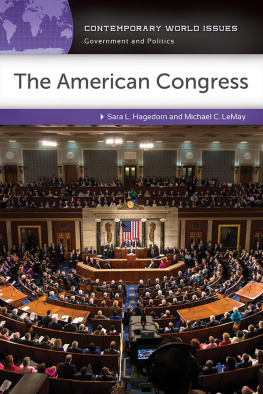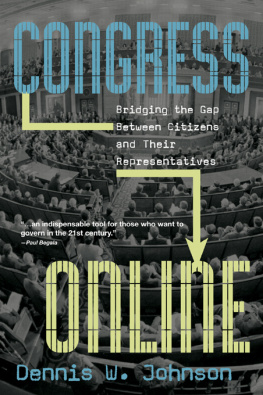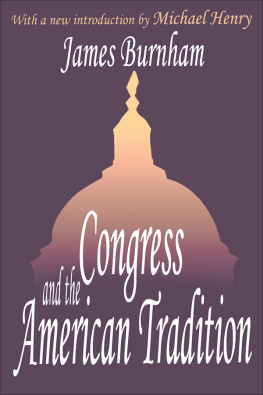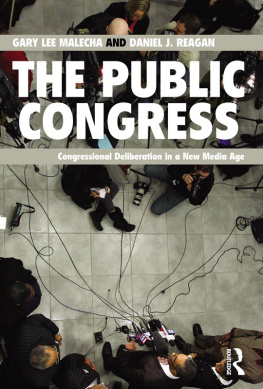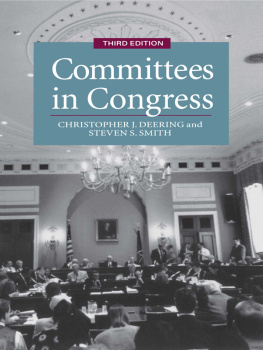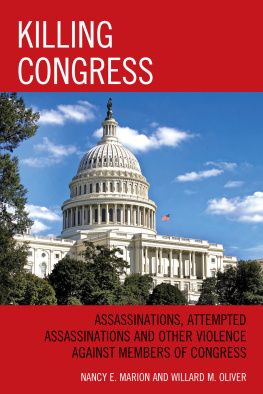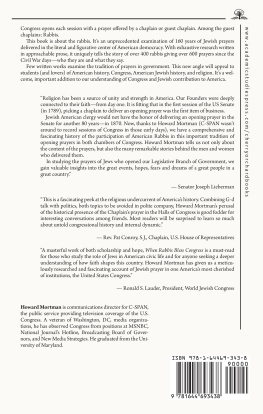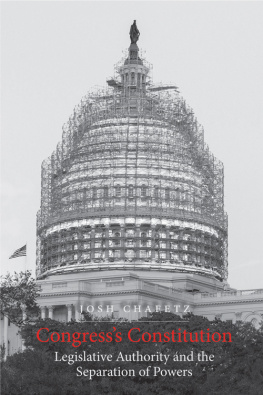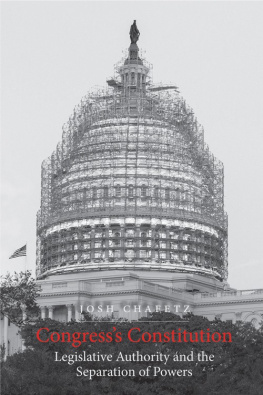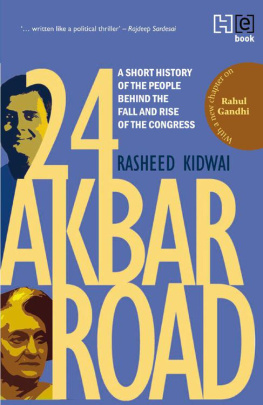The American Congress Reader
The American Congress Reader provides a supplement to the popular and newly updated American Congress undergraduate textbook. Designed by the authors of the textbook, the Reader compiles the best relevant scholarship on party and committee systems, leadership, voting, and floor activity to broaden and illuminate the key features of the text.
Steven S. Smith is Kate M. Gregg Professor of Social Sciences and Director of the Weidenbaum Center at Washington University in St. Louis. He has authored or coauthored seven books and many articles on congressional politics, including Call to Order: Floor Politics in the House and Senate, Party Influence in Congress , and Politics or Principle: Filibustering in the U.S. Senate , and has coauthored several articles and a book on Russian parliamentary politics. He is a former Senior Fellow at the Brookings Institution and has taught at the University of Minnesota, Northwestern University, and George Washington University.
Jason M. Roberts is Assistant Professor of Political Science at the University of North Carolina at Chapel Hill. His research interests include American politics, the U.S. Congress, elections, and Supreme Court nominations. He has published articles in the American Journal of Political Science , the Journal of Politics , and Congress and the Presidency.
Ryan J. Vander Wielen is Assistant Professor of Political Science at Temple University. He was previously a Fellow in the Political Institutions and Public Choice program at Michigan State University and at the Weidenbaum Center at Washington University in St. Louis. He has recently been published in Political Analysis and Loyola of Los Angeles Law Review.
The American Congress Reader
Edited by
Steven S. Smith
Washington University in St. Louis
Jason M. Roberts
University of North Carolina at Chapel Hill
Ryan J. Vander Wielen
Temple University
CAMBRIDGE UNIVERSITY PRESS
Cambridge, New York, Melbourne, Madrid, Cape Town, Singapore, So Paulo, Delhi
Cambridge University Press
32 Avenue of the Americas, New York, NY 10013-2473, USA
www.cambridge.org
Information on this title: www.cambridge.org/9780521720199
Cambridge University Press 2009
This publication is in copyright. Subject to statutory exception and to the provisions of relevant collective licensing agreements, no reproduction of any part may take place without the written permission of Cambridge University Press.
First published 2009
Printed in the United States of America
A catalog record for this publication is available from the British Library.
Library of Congress Cataloging in Publication Data
The American Congress reader / edited by Steven S. Smith, Jason M. Roberts, Ryan J. Vander Wielen.p. cm.ISBN 978-0-521-72019-9 (pbk.)1. United States. Congress. 2. United States. Congress Evaluation. 3. United States Politics and government 21st century Public opinion. 4. Public opinion United States.I. Smith, Steven S., 1953 II. Roberts, Jason M. III. Vander Wielen, Ryan J. IV. Title.JK1041.A617 2009328.73dc22 2008039660
ISBN 978-0-521-72019-9 paperback
Cambridge University Press has no responsibility for the persistence or accuracy of URLs for external or third-party Internet Web sites referred to in this publication and does not guarantee that any content on such Web sites is, or will remain, accurate or appropriate. Information regarding prices, travel timetables, and other factual information given in this work are correct at the time of first printing, but Cambridge University Press does not guarantee the accuracy of such information thereafter.
Contents
John Hibbing and Elizabeth Theiss-Morse
David W. Brady and Sean M. Theriault
James A. Stimson
James Madison
Richard F. Fenno, Jr.
Robert Weissberg
Gary W. Cox and Jonathan N. Katz
Gary C. Jacobson
David R. Mayhew
Frances E. Lee
David W. Rohde
Tracy Sulkin
Joseph Cooper and David W. Brady
Gary W. Cox and Mathew D. McCubbins
Steven S. Smith
Mark S. Hurwitz, Roger J. Moiles, and David W. Rohde
Forrest Maltzman and Steven S. Smith
Jeffrey C. Talbert, Bryan D. Jones, and Frank R. Baumgartner
Gary W. Cox
Sarah A. Binder
Jason M. Roberts and Steven S. Smith
Diana Evans
John W. Kingdon
Keith Krehbiel
Charles Cameron
Sarah A. Binder
Louis Fisher
Jeffrey Rosen
Charles M. Cameron, Albert D. Cover, and Jeffrey A. Segal
Glen S. Krutz, Richard Fleisher, and Jon R. Bond
Richard L. Hall and Frank W. Wayman
John Wright
Diana Evans
John Solomon and Jeffrey H. Birnbaum
Steven S. Smith, Jason M. Roberts, and Ryan J. Vander Wielen
Kenneth A. Shepsle and Barry R. Weingast
Gerald S. Strom
The American Congress Reader
PART I. THE AMERICAN CONGRESS: MODERN TRENDS
Chapter One What is wrong with the American Political System?
John Hibbing and Elizabeth Theiss-Morse
Hibbing and Theiss-Morse argue that the American public dislikes Congress, as it does other parts of government, because it dislikes the processes of government. Congress, in which conflict, partisanship, and bargaining is quite visible to the public, is disliked the most. It is Congresss transparency that makes it the least-liked among the major institutions of government.
The voices of citizens matter in a democracy, but understanding what these voices are truly saying is difficult. We know that the American public holds the political system, and the institutions composing it, in astonishingly low regard. We also know that people are especially disgusted with Congress. The reason for these negative feelings is much less clear. If we are to understand what citizens are saying, however, we must determine what lies behind their antipathy. We pursue this task in the pages that follow. Our primary thesis is that dissatisfaction with the political system and especially Congress is due in no small part to public perceptions of the processes involved. As will become apparent, some aspects of these allegedly flawed governing processes are of the sort that could be improved through the adoption of certain political reforms, but other aspects are endemic to open democratic government. That the people of the United States, a country often viewed as the initiator of modern democratic government, have an aversion to democratic processes may sound absurd to many, and perhaps obvious to a few, but we ask for patience as we develop the evidence and logic behind this contention and as we append the necessary caveats and qualifications.
The public's negativity toward the political system and Congress has reached the saturation point. It pours forth with only the slightest provocation and has been duly recorded by countless political observers. In fact, these sentiments have been so much a part of the recent scene that only the briefest sampling is needed here. The title and first few paragraphs of a 1991 Washington Post article include these words and phrases: an electorate ready to revolt, anger, frustration, crisis of confidence, a political system under indictment, crisis of confidence (again), disaffection, anxiety, decline of confidence (for variety), disillusionment, government off track, frustrations, and further frustrations (for good measure).


